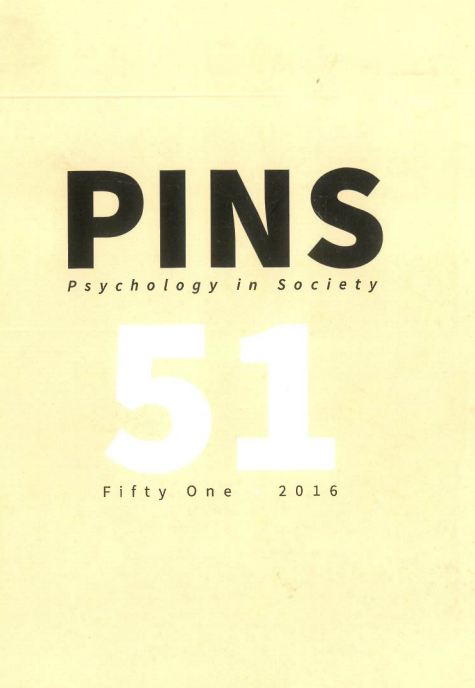What, for Lacan, makes the function of the Father work? Of Abraham and the goat, or, of Elliott and ET
DOI:
https://doi.org/10.17159/2309-8708/2016/n51a9Abstract
Lacan, Jacques (2013) On the Names-of-the-Father. (Edited by Jacques-Alain Miller, Translated by Bruce Fink.)
Cambridge: Polity Press (2005-French).
ISBN: 978-0-7456-5991-6 hbk. Pages 105.
What Lacan calls the Name-of-the-Father refers to the influence of cultural and social law within the family, something which has traditionally – especially within patriarchal societies – been associated with the actual figure of the father. Given that Lacan thinks of the Name-of-the-Father as a signifier – and a crucial signifier at that, one that anchors the symbolic order and enables it to function – it need not refer to a literal father. This much is made clear by the reference in Catholicism to, precisely, the Name of the Father, a signifier (or term of reference), which clearly points beyond the level of mere mortal fathers. Stijn Vanheule (2011) provides a brief yet illuminating description of the Lacanian concept of the father. The father for Lacan is “a symbolic function to which all group members … are subjected” (61); “It provides human beings with an internalized compass of culturally and socially viable principles” (Stijn Vanheule, 2011: 61).
Downloads
Downloads
Published
How to Cite
Issue
Section
License
This journal is an open access journal, and the authors' and journal should be properly acknowledged, when works are cited.
Authors may use the publishers version for teaching purposes, in books, theses, dissertations, conferences and conference papers.
A copy of the authors’ publishers version may also be hosted on the following websites:
- Non-commercial personal homepage or blog.
- Institutional webpage.
- Authors Institutional Repository.
The following notice should accompany such a posting on the website: “This is an electronic version of an article published in PINS, Volume XXX, number XXX, pages XXX–XXX”, DOI. Authors should also supply a hyperlink to the original paper or indicate where the original paper (http://www.journals.ac.za/index.php/pins) may be found.
Authors publishers version, affiliated with the Stellenbosch University will be automatically deposited in the University’s’ Institutional Repository SUNScholar.
Articles as a whole, may not be re-published with another journal.
The copyright of the article(s) lies with the author(s).
The copyright of the journal lies with PINS-psychology in Society.
The following license applies:
Attribution CC BY-NC-ND 4.0 - https://creativecommons.org/licenses/by-nc-nd/4.0/

